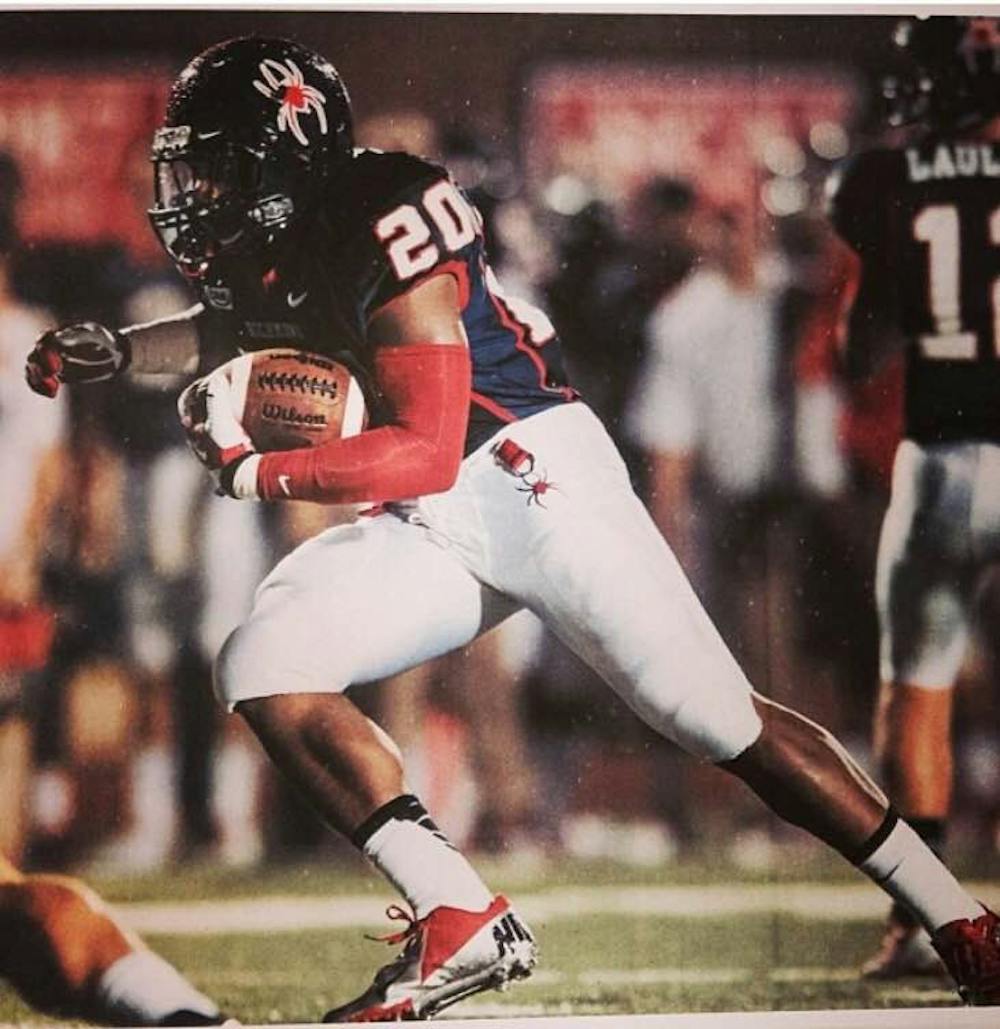Registration is one of the most stressful days of the semester for many students. But for student-athletes, the stress lasts longer than one day.
George Boston, RC '13, who was a football player and Bonner Scholar, said he had faced challenges in balancing school and sports. “The only way I managed to get through it was because I was willing to pull countless all-nighters,” Boston said. “There just wasn’t enough time in the day for me sometimes.”
NCAA policy, as stated on the association’s website, prohibits student-athletes from missing class in order to attend practice. Athletes also have to make sacrifices as they prioritize the rest of their commitments.
“I would say there’s not one team that doesn’t have people missing practice or leaving practice for class,” Bruce Matthews, Richmond's assistant director of athletics and academics, said. “Some will have more. But that’s a goal a coach will have – will there be one day that everybody’s here?”
Boston said there were no shortcuts for student athletes at Richmond. “It takes a great deal of dedication to do what we do and sometimes it feels like we don’t get treated fairly,” he said.
Some of the sacrifices that student-athletes make come down to simple, day-to-day decisions. Tara Hanley, who runs cross country and track, said she often felt pressed for time. “If we practice off campus or if we have lift and practice, it’s a struggle when you have a 10:30 class,” Hanley said. “You find yourself having 15 minutes to spare. Do I shower or do I eat? Do I look nice today or do I have breakfast?”
Athletes register with the scholars ahead of regular students, which makes registration easier, Tim Gruber, cross country runner, said.
“As part of our commitment to the team, it is expected that you do not sign up for 9 a.m. classes, or else you knowingly miss practice,” Gruber said.
Non-athletes stress about registration, too, and some don't support athletes having an advantage.
“I get that they have to fulfill certain academic requirements, and that they have to perform well academically and athletically, which I’m sure is a lot of pressure on them," junior Mary Blevins said. “And them getting early registration relieves some of that stress. However, while I’m sure the university wants everybody to succeed, it feels like they want the athletes to succeed more with the early registration because then they are guaranteed to get the classes they need.”
But depending on a student’s major, there are added complications. For Liv Healy, a basketball player and journalism major, the upper-level journalism courses all begin at noon or later, unlike the intro courses that fall before noon. Those classes often interfere with practice time.
Senior Melissa Ross, a swimmer and biology major, said she faced conflicts with non-negotiable lab times in the science department.
Enjoy what you're reading?
Signup for our newsletter
Matt Barany, who has been coaching the women’s swimming and diving team for 11 years, said that the team had always had to deal with conflicts, but these had grown harder to avoid recently.
“I do believe that it’s not simply an athletic problem,” Barany said. “I think the offering of classes has become much slimmer. And also it’s my experience that we have fewer students with classes on Friday. Why don’t they teach a class on Friday?”
Matthews said three-day classes had decreased in recent years, which meant fewer classes on Fridays. According to Bannerweb, out of nearly 1,750 courses offered this spring, only about 200 fall on Fridays.
Matthews also said that Richmond coaches were more flexible than coaches at some other universities where he had worked. Healy, however, said she did not want "to step on any toes" in the athletic department.
"Our coaches are basically paying for you to take this class in the first place," she said. "So that’s really hard, to approach a coach and tell them this is the situation that I’m in, and there’s no way I can avoid it.”
Football player Omar Howard said his coaches made every attempt to get players prepared for class. “If they have to take a class at 6:00, and practice doesn’t end until 6:30, [coach] will let those guys out early to get showered and get to class with a bagged lunch," Howard said.
And then there are the unforeseen events. This past fall, for example, the football team had to rework their final exams while they were traveling for the FCS playoffs. Howard said many teammates had proctored exams with the associate director of academic support, Felicia Bergman.
“While we were at the hotel we had a room for the guys taking finals," he said. "A lot of times teachers accommodate. They were flexible. They understand you have an obligation and can’t actually be here.”
Elizabeth Ransom, a sociology professor who works with the Faculty Athletic Committee, said coaches ultimately wanted their players to succeed.
“Coaches at the University of Richmond want to see their student-athletes succeed, not only in their sport, but also in life,” she said.
Support independent student media
You can make a tax-deductible donation by clicking the button below, which takes you to our secure PayPal account. The page is set up to receive contributions in whatever amount you designate. We look forward to using the money we raise to further our mission of providing honest and accurate information to students, faculty, staff, alumni and others in the general public.
Donate Now



